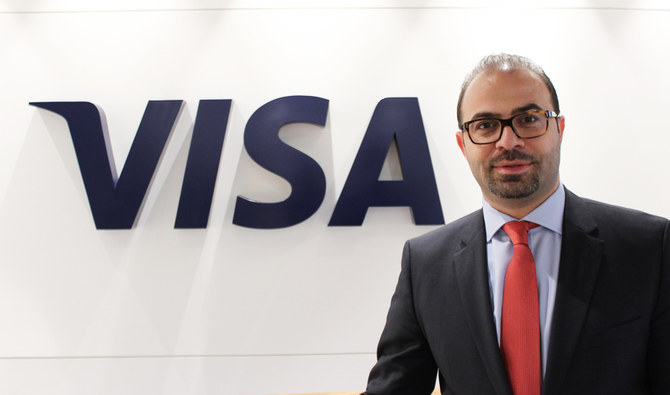The last few years have seen Saudi Arabia making significant strides in its agenda of moving to a digital economy. While much of the attention has centered on the rapid shift to digital payments by consumers in the Kingdom, underpinned by the launch of digital wallets such as mada Pay and Apple Pay, there is an exciting opportunity in digitizing payments in the corporate and public sectors as well.
In fact, Dr. Ahmed Abdulkarim Al-Kholifey, governor of the Saudi Arabian Monetary Authority (SAMA), has previously highlighted the focus of the Financial Sector Development Program on increasing non-cash transactions as part of Saudi Vision 2030 and SAMA is leading the charge to digitalize payments with initiatives.
A Visa-commissioned survey, Cashless Cities, previously found that in Riyadh alone, the government could save nearly SR10.1 billion ($2.7 billion) from cost savings in administrative efficiencies and increased economic growth due to a reduced reliance on cash. The same survey estimated that businesses in Riyadh could achieve up to SR13.9 billion in savings through digital payments.
FASTFACT
Saudi Arabia is one of 62 markets globally Visa has selected to launch B2B Connect.
Overall, the study results show the potential benefits that cities, governments, businesses, and consumers may have if they transition to an achievable level of “cashlessness.”
Visa continues to work closely both with public bodies such as mada, the national payment scheme, and the Ministry of Finance, with which Visa signed an MoU in April this year to support their efforts to digitize government-2-business flows, as well as banks and fintech partners. Not only is our technology helping to power digital wallets such as mada Pay and Apple Pay, most recently, we launched Visa B2B Connect, a platform designed to give financial institutions a secure, fast and predictable way to process cross-border business-to-business (B2B) payments.
By adding transparency and simplifying cross-border B2B payments using distributed ledger technology, Visa B2B Connect aims to remove friction and time from the process and accelerate the flow of commercial payments around the world. Saudi Arabia is one of 62 markets globally Visa has selected to launch B2B Connect. And Visa remains upbeat about its potential to further strengthen the opportunities for the economic growth of the Kingdom.
The writer is Visa’s general manager for Saudi Arabia.















